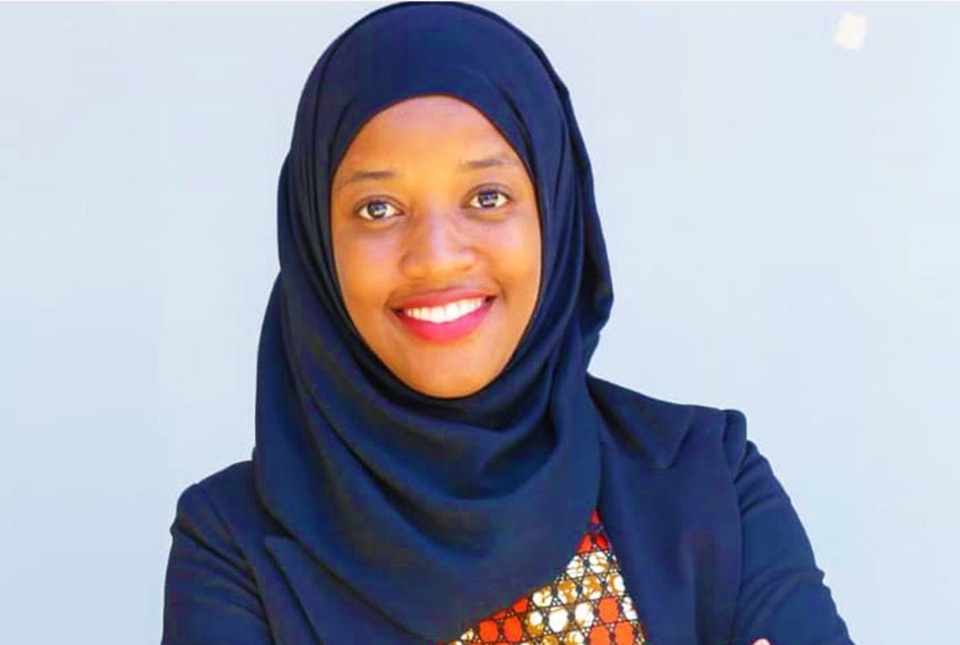In The Words of ... Shamira Mshangama : “We need to level the playfield to increase young women’s leadership and participation in politics”
Shamira Mshangama, 26, is the Founder and Executive Director of Mwanamke na Uongozi, Tanzania, a Non-Governmental Organisation based in Dar es Salaam. It empowers and inspires girls and women in both rural and urban areas to participate in leadership and decision-making positions in all spheres of life.Date:

![]() The need to promote the rights of women and girls was the main reason I teamed up with a group of like-minded young women from various universities in Tanzania and formed the Mwanamke na Uongozi (A woman in leadership) movement in 2017. As young and vibrant university students, seven in number, we wanted to contribute to the removal of barriers that still stand against the empowerment and participation of women in different sectors. We saw that young women and girls were in need of mentorship support and we did not have well-funded, and sustainable programs promoting such vital capacity building efforts.
The need to promote the rights of women and girls was the main reason I teamed up with a group of like-minded young women from various universities in Tanzania and formed the Mwanamke na Uongozi (A woman in leadership) movement in 2017. As young and vibrant university students, seven in number, we wanted to contribute to the removal of barriers that still stand against the empowerment and participation of women in different sectors. We saw that young women and girls were in need of mentorship support and we did not have well-funded, and sustainable programs promoting such vital capacity building efforts.
As a movement then, we also felt the need to influence an early awareness of gender issues among girls, and currently we are working with girls and women starting from the age of 12. Our programs aim to help women and girls to understand their rights and the importance of leadership and participation in decision making across all spheres of life. Through our work, now as a Non- Governmental Organization, we are advocating for an enabling environment for the achievement of gender equality. Promoting the leadership of women and girls is at the heart of our work, as we aim to push for the 50-50 representation of women across all sectors, including in the up-coming general elections to be held in October. We have been conducting several advocacy campaigns targeting all political parties for conversations on how to increase young women candidates as contestants, and to influence their election in key political party positions. In my view, we need to continue our advocacy promoting young women’s leadership beyond the general elections, and focus much better on all sectors of the economy, collaborating with partners such as UN Women.
One area we continue to invest in is to promote local communities to change their behaviour towards young women leaders, working through community-based networks and social media platforms. While it is important that we build communities that accept young women as leaders, we also need to continue investing in building the leadership capacity of young women and girls. Our Nakataa Vikwazo Nagombea project (a year political academy) conducted in Tanga region attracted 30 young women politicians from six political parties. I am encouraged by the fact that we got 18 candidates who will be participating in the general elections.
We know that in some cases young women leaders who are capable shun politics due to fear of gender-based violence even within their families. Therefore, it is important for us to continue strengthening partnerships with organizations such as the Police, UN Women, the civil society organizations and government institutions to help address gender-based violence and level the playfield to increase young women’s leadership and participation in politics.
Beyond the elections, I would like to see our program continue to grow and reaching a large pool of women and girls in various communities for us to plant the right seeds of leadership. I believe if we are to make progress in increasing young women leaders across all sectors, we must be prepared to address difficult situations through serious conversations and strategies.